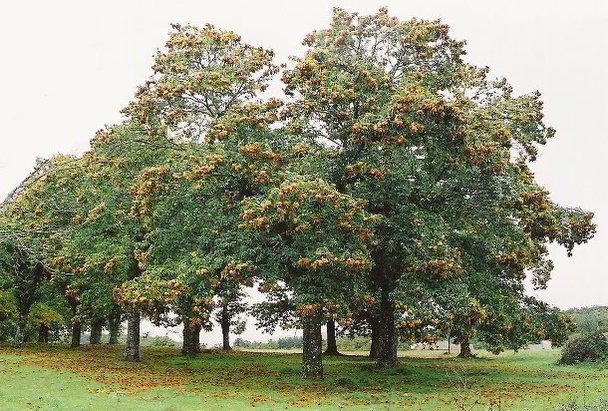The protracted discussions on how best to motivate farmers to nurture and not destroy trees on their farms has gained fresh momentum. This follows a strategic meeting on Thursday, July 2, 2020 at Aburi in the Ghana Eastern Region, of representatives of key stakeholder groups such as government, industry/private sector and civil society who include farmers.

They were able to identify a tentative source of funding to provide regular support for a general scheme that will soon be finalised to compensate farmers who nurture naturally occurring trees. The conversation has been prolonged for 40 years now, chiefly due to disagreements among stakeholders over funding sources and the amount that will be commensurate enough for such farmers.
The practice of destroying naturally occurring trees on farms by farmers, which is perpetrated by unclear tree tenure and benefits sharing arrangements, has been identified as a major contributing factor to forest loss in Ghana, which is said to be the fastest in the world. Therefore, if properly addressed, nurturing naturally occurring trees on farms could significantly enhance tree cover and reduce forest loss in the country.
Since the early 1980s, organisations and institutions including the Ministry of Food and Agriculture (MoFA) and CARE International Ghana have made various attempts to address the issue. Following that, discussions have been on-going to determine the exact way forward. Subsequently, in 2016, the Ministry of Lands and Natural Resources (MLNR) commissioned a study on the issue that led to the development of the Tree Tenure and Benefit Sharing Framework in Ghana.
The framework, among other things, highlights existing tree tenure and benefit sharing arrangements across the nation. It concludes that “the existing tree tenure should be reformed such that ownership of naturally occurring timber trees, are vested in persons or entities with management, exclusion and alienation rights to trees and land.” Since its development, the Framework has informed discussions on related issues.
The Aburi brainstorming session was to prepare the grounds to develop a general tree tenure and benefit sharing arrangements that would be motivating enough for farmers to protect naturally occurring trees.
The meeting touched on several critical issues including the Timber Tending Benefit (TTB) proposal submitted to the sector ministry, by a committee setup a year ago to provide options for getting benefits to farmers.
Earlier discussions on the proposal had raised two issues. The first was that suggested figures to compensate farmers were not lucrative enough to prevent them from destroying trees on their farms or even selling them to illegal loggers. While, the second was that funds for the TTB should rather come from management fees charged by Forestry Commission (FC) and not be an additional charge to industry/private sector.
During those discussions, the FC rejected the suggestion that it should bear that cost. This was on the basis that it will be impossible to implement and enforce both legally and operationally.
The legal argument was that “the financial management regulation stipulates that all revenue accrued to stool lands be collected and disbursed by Office of the Administrator of Stool Lands (OASL)”. So, FC only collects stumpage fees based on an agreement with OASL and keeps the 50% management fees in consolidated accounts of government. Then operational wise, monies in consolidated accounts can only be spent by the Ministry of Finance through budgetary allocations.
Based on these considerations, the stakeholders at the Aburi meeting reached the consensus that industry/private sector should absorb the cost by paying an additional amount to the stumpage fees paid, whenever they log off reserve. Obviously, this was the option that best provides a sustainable source of funding for the scheme.
While, the industry/private sector representatives accepted this proposal in principle, they have asked for time to further consult their members on two critical issues. First, are members willing to absorb the additional payment to the stumpage fees and secondly, what percentage of the stumpage fees are they willing to pay as extra charge to feed into the scheme.
The meeting concluded that, in the interim, tree registration was still a necessary part of the tree tenure and benefits sharing agreement scheme. Therefore, the Resource Management Support Centre (RMSC) of the FC as well as interested parties should go ahead and initiate the process for registering trees on farms.
The purpose of the exercise in this situation is to help farmers who nurture naturally occurring trees on their farms, secure proof of ownership from the FC.
By Ama Kudom-Agyemang
